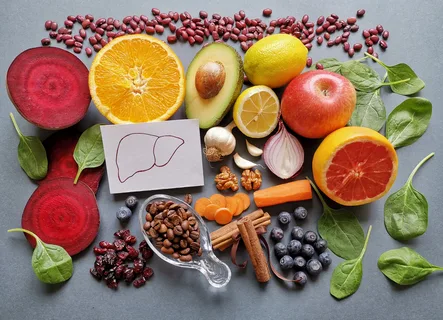Skin elasticity is a crucial aspect of a youthful appearance and overall skin health. As we age, our skin’s natural elasticity can diminish due to various factors, including environmental damage, lifestyle choices, and the natural aging process. Vitamins play a significant role in maintaining and improving skin elasticity. This guide delves into the best vitamins for enhancing skin elasticity, their benefits, and how to incorporate them into your skincare routine.
Understanding Skin Elasticity
What is Skin Elasticity?
Skin elasticity refers to the skin’s ability to return to its original shape after stretching or contracting. It is largely determined by the presence of collagen and elastin fibers in the skin. Collagen provides structural support, while elastin allows the skin to stretch and bounce back. Over time, these fibers can degrade due to aging, sun exposure, and other environmental factors, leading to wrinkles, sagging, and loss of firmness.
Why is Skin Elasticity Important?
Maintaining good skin elasticity is essential for a youthful appearance and overall skin health. Elastic skin helps minimize the appearance of fine lines and wrinkles, prevents sagging, and supports the skin’s structural integrity. It also aids in maintaining a smooth and even skin texture, contributing to overall skin vitality.
Key Vitamins for Enhancing Skin Elasticity
Vitamin C
Vitamin C is renowned for its antioxidant properties and its role in collagen synthesis. Collagen is a protein that provides structure and firmness to the skin. Vitamin C helps stimulate collagen production, reducing the appearance of fine lines and improving skin texture.
Benefits of Vitamin C for Skin Elasticity:
- Boosts Collagen Production: Enhances the synthesis of collagen, improving skin firmness and elasticity.
- Protects Against Sun Damage: Neutralizes free radicals caused by UV exposure, which can damage collagen and elastin.
- Brightens Skin Tone: Reduces hyperpigmentation and promotes an even skin tone.
Vitamin E
Vitamin E is a powerful antioxidant that helps protect the skin from oxidative stress caused by free radicals. It also supports skin hydration and repair, which are vital for maintaining elasticity.
Benefits of Vitamin E for Skin Elasticity:
- Protects Against Environmental Damage: Shields the skin from harmful UV rays and pollution.
- Improves Skin Hydration: Enhances moisture retention, preventing dryness and loss of elasticity.
- Promotes Skin Repair: Aids in healing damaged skin and reducing the appearance of scars.
Vitamin A
Vitamin A, including its derivatives like retinoids, is crucial for skin health. It promotes cell turnover, stimulates collagen production, and helps improve skin texture.
Benefits of Vitamin A for Skin Elasticity:
- Stimulates Collagen Production: Boosts the synthesis of collagen, enhancing skin firmness.
- Promotes Cell Turnover: Encourages the renewal of skin cells, leading to smoother and more elastic skin.
- Reduces Wrinkles and Fine Lines: Helps minimize the appearance of aging signs.
Vitamin D
Vitamin D plays a role in skin health by regulating cell growth and repair. It helps maintain skin barrier function, which is essential for overall skin integrity.
Benefits of Vitamin D for Skin Elasticity:
- Supports Skin Barrier Function: Maintains the skin’s natural barrier, preventing moisture loss.
- Aids in Skin Repair: Enhances the healing process of damaged skin.
- Reduces Inflammation: Helps calm inflammatory skin conditions, contributing to a more even texture.
Vitamin K
Vitamin K is known for its role in blood clotting, but it also has benefits for skin health. It helps with the repair of damaged skin and can reduce the appearance of dark circles and bruises.
Benefits of Vitamin K for Skin Elasticity:
- Improves Skin Healing: Supports the repair of damaged skin and reduces the appearance of bruises.
- Reduces Dark Circles: Helps lighten under-eye circles and improve skin tone.
- Enhances Skin Texture: Contributes to a smoother and more even skin surface.
How to Incorporate These Vitamins into Your Routine
Dietary Sources
A balanced diet rich in fruits, vegetables, nuts, and seeds is essential for obtaining these vital vitamins. Here are some dietary sources:
- Vitamin C: Citrus fruits, strawberries, bell peppers, and broccoli.
- Vitamin E: Nuts, seeds, spinach, and avocados.
- Vitamin A: Carrots, sweet potatoes, kale, and liver.
- Vitamin D: Fatty fish, fortified dairy products, and egg yolks.
- Vitamin K: Leafy greens, broccoli, Brussels sprouts, and fermented foods.
Topical Applications
In addition to dietary sources, topical application of vitamins can directly benefit the skin. Look for serums, creams, and lotions that contain:
- Vitamin C: Often found in serums and creams that help brighten and firm the skin.
- Vitamin E: Included in moisturizing creams and oils for enhanced hydration.
- Vitamin A: Available in retinoid creams that promote cell turnover and collagen production.
- Vitamin D: Less common in topical products but can be found in some specialized formulations.
- Vitamin K: Often used in eye creams and treatments for dark circles.
Supplements
Supplements can also be an effective way to ensure adequate intake of these vitamins, especially if your diet lacks variety. Choose high-quality supplements and consult with a healthcare professional before starting any new regimen.
FAQs
How does Vitamin C help improve skin elasticity?
Vitamin C boosts collagen production, which is crucial for maintaining skin firmness and elasticity. It also protects the skin from oxidative stress caused by free radicals, which can damage collagen and elastin fibers.
What are the best sources of Vitamin E for skin health?
Vitamin E can be found in nuts, seeds, spinach, and avocados. These foods help enhance skin hydration and protect against environmental damage.
Can Vitamin A reverse signs of aging?
Vitamin A promotes cell turnover and stimulates collagen production, which can help reduce the appearance of wrinkles and fine lines. It’s often used in anti-aging skincare products like retinoids.
How does Vitamin D benefit the skin?
Vitamin D supports skin barrier function, enhances skin repair, and reduces inflammation. It helps maintain overall skin health and integrity.
What role does Vitamin K play in skin care?
Vitamin K aids in skin repair, reduces the appearance of dark circles, and enhances skin texture. It’s often included in products targeting under-eye circles and skin discoloration.
Are there any side effects of using Vitamin C on the skin?
Vitamin C is generally safe for most skin types, but some people may experience irritation or sensitivity. It’s important to use products with a stable form of Vitamin C and start with a lower concentration if you have sensitive skin.
How often should I apply Vitamin E to my skin?
Vitamin E can be applied daily as part of your skincare routine. It’s often included in moisturizers and oils, providing continuous hydration and protection.
Can I get enough Vitamin A from my diet alone?
A balanced diet rich in Vitamin A sources like carrots, sweet potatoes, and leafy greens can provide sufficient amounts. However, if you’re looking for more targeted benefits, supplements or topical products might be necessary.
Is it necessary to use supplements for Vitamin D?
Supplementing with Vitamin D may be necessary if you have limited sun exposure or dietary intake. Consult with a healthcare provider to determine your individual needs and appropriate dosage.
How can I tell if a skincare product contains high-quality Vitamin K?
Look for products that list Vitamin K in the ingredients and check for reputable brands known for quality formulations. Vitamin K should be among the first ingredients for it to be effective.
Conclusion
Maintaining skin elasticity is essential for a youthful and healthy appearance. Incorporating vitamins such as Vitamin C, E, A, D, and K into your diet and skincare routine can significantly improve skin firmness, hydration, and overall texture. Whether through dietary sources, topical applications, or supplements, these vitamins offer powerful benefits for preserving and enhancing your skin’s elasticity. For best results, combine these vitamins with a holistic skincare approach that includes sun protection, hydration, and a balanced diet.
- What Is Better Than Tear Trough Filler? - May 31, 2025
- Profhilo Treatment Near Tandridge, Surrey - May 31, 2025
- Obagi Nu-Derm System Skincare Steps In Kingston Upon Thames Surrey London - May 31, 2025




